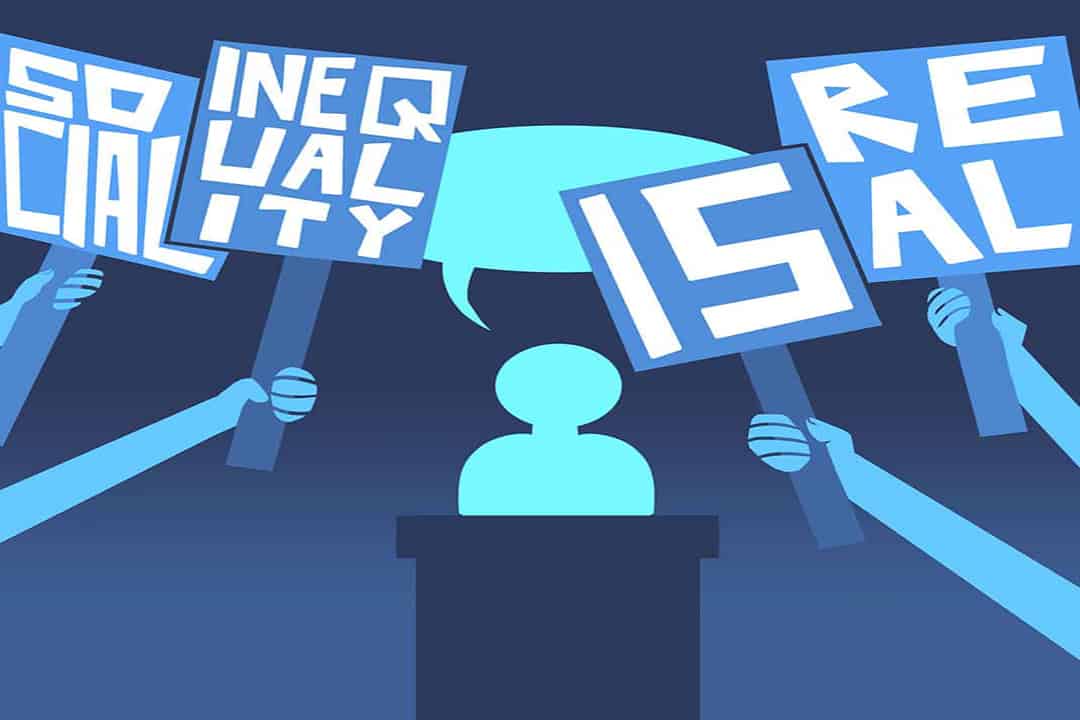Section 2(c ) of the Canadian Charter of Rights and Freedoms guarantees the right to peaceful assembly, though it does not protect riots or gatherings that disturb the peace nor does it include the right to physically impede or blockade lawful activities.
The Varsity asked two writers to reflect on the nuanced significance of protests of the constitutional right.
Protests allow for meaningful action
As one of the founding principles of civil liberties, the right to assembly is extremely important when it comes to discussing freedom. Protests are much more than just confrontational gatherings: they are for voices, for expression, and most importantly, for action.
Not even counting the centuries worth of revolutions, power shifts, and mass demonstrations behind us, the last few years alone have seen no shortage of impactful assembly, both small and large.
In the wake of the 2020 pandemic, the institutional murder of George Floyd sparked nationwide, and even international, marches that demanded justice and action toward the overbearing power of the current law enforcement system. More recently, Mahsa Amini’s cruel death at the hands of the Iranian morality police spurred widespread outrage and protests against Iran’s current regime. And at U of T, the six years since 2016 to now have been continuously characterized by student protests to divest from fossil fuel industries to combat rising global climate issues.
From large-scale transcendental movements such as Stop Asian Hate and protecting the right to abortions to individual company affairs such as unionized striking and lobbying, the assembly of peaceful protests has proven time and time again that there is power in numbers, strength in quantity, and significance in opinion.
Although different in nature, motive, and execution, these protests stand for one crucial principle: representation. They reflect the voices and outcries of a country’s citizens, proving to institutions and those in power what the people truly want. Assembly of the people is the most direct form of freedom in any society — which is why it is so important.
Whether it is raising awareness, calling out to governments and legislators for action, or simply hoping to be heard and recognized, protests are the embodiment of the people’s values and allow us to exercise our right to determine our futures.
Isabella Liu is a second-year student at Victoria College studying international relations, public policy and environmental studies. She is an associate comment editor at The Varsity.
There need to be reasonable limits to protests
Although protests allow for meaningful societal progress, there need to be reasonable limits against disruptive protests.
Upon her arrest in Ottawa in February, Tamara Lich, a Freedom Convoy protest organizer, cried out, “It’s not an illegal protest. It’s within our Charter of Rights and Freedoms.”
Days later, CBC News uploaded an article with an image of a person holding a copy of the Canadian Charter of Rights and Freedoms in front of Parliament Hill amidst the chaos. Both Lich’s defense and the photo encapsulate the widespread misconception surrounding the validity of protests and constitutional freedoms: that anyone has the unrestricted liberty to entertain their rights to a peaceful assembly under section 2(c) of the Charter.
As with any other kind of freedom, however, the right to a peaceful assembly is subject to limitations. In accordance with Canadian case law, assemblies are not “peaceful” when they significantly disturb the peace by physically blockading lawful activities through riots.
While it is true that too many restrictions on protests could disempower the platform of repressed voices of the people, I see the need for reasonable limits to protests.
The right to protest should not have extended to the unlawful Freedom Convoy protests that delayed chemotherapy appointments of thirteen children battling cancer in Ottawa. The right to protest should not protect QAnon protestors who set out to seize the Peterborough Police Service by placing members under “citizen’s arrest” and virtually encourage others to “kill health professionals.” The right to protest under the US Constitution’s First Amendment should not have been used to justify the Capitol riots in early 2021, which resulted in the lawless raid and destruction of the state’s Capitol Building.
Above all, the very debate over what constitutes a valid assembly allows for dialogue on what “freedom” means. Limiting harmful protests does not mean limiting the freedom of people or stifling democracy. Instead, it means protecting the integrity of protests and freedom of speech.
Eleanor Park is a second-year student at Trinity College studying English and religion. She is an associate comment editor at The Varsity.


